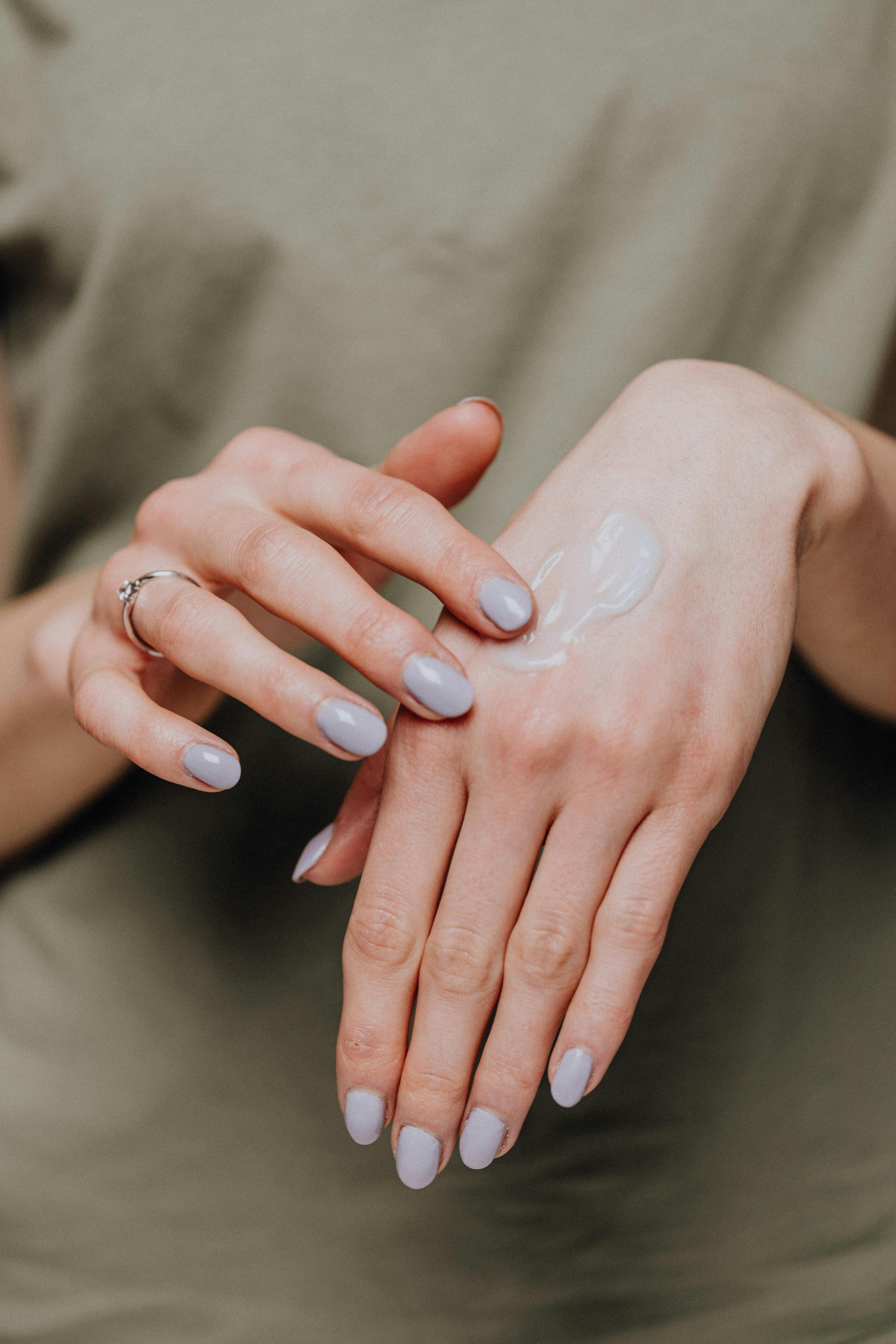We’ve all been there – that moment when we eagerly reach for that comforting cup of coffee or energizing sip of tea, only to be met with an unwelcome jolt of anxiety or an uncomfortable crash. It’s a frustrating reality for those of us who experience caffeine sensitivity, a condition that can leave us feeling on edge or even exacerbate existing health issues. But fear not, because in this article, we’ll explore practical tips and strategies to help navigate the world of caffeinated beverages and find ways to enjoy them without the unwanted side effects. So if you’ve ever wondered how to deal with caffeine sensitivity, keep reading for some valuable insights.

Understand Caffeine Sensitivity
What is caffeine sensitivity?
Caffeine sensitivity refers to an individual’s heightened reaction to the effects of caffeine. While many people enjoy the boost in energy and alertness that caffeine provides, some individuals may experience adverse reactions to even small amounts of caffeine. This sensitivity can vary between individuals, with some people being more susceptible to the stimulant effects of caffeine than others.
Symptoms of caffeine sensitivity
The symptoms of caffeine sensitivity can vary from person to person, but common indicators include palpitations, increased heart rate, restlessness, irritability, anxiety, gastrointestinal distress, headaches, and difficulty sleeping. Additionally, individuals with caffeine sensitivity may experience jitters, increased blood pressure, frequent urination, and even feelings of panic or depression.
Causes of caffeine sensitivity
Caffeine sensitivity can be influenced by various factors, including genetics, metabolism, and overall health. Some individuals may have a naturally higher sensitivity to caffeine due to their genetic makeup. Additionally, certain medical conditions, such as anxiety disorders or irritable bowel syndrome, can increase an individual’s susceptibility to the effects of caffeine. It is also important to note that caffeine sensitivity can change over time, so what may have once had a minimal impact on the body may now result in heightened sensitivity.
Consult a Medical Professional
Visit a doctor or a healthcare provider
If you suspect that you have caffeine sensitivity or are experiencing adverse reactions after consuming caffeine, it is important to consult a medical professional. A doctor or healthcare provider can help diagnose and evaluate your symptoms, ensuring they are not caused by any underlying medical conditions.
Discuss your symptoms and concerns
During your visit, be sure to discuss your symptoms, concerns, and the frequency and amount of caffeine you consume. Providing detailed information will assist the medical professional in assessing your situation and providing appropriate recommendations.
Follow their recommendations
Based on your consultation and evaluation, the healthcare provider will provide tailored advice to help manage your caffeine sensitivity. This may include reducing caffeine consumption, implementing lifestyle changes, or exploring other treatment options. It is crucial to follow their recommendations to effectively manage your caffeine sensitivity and minimize any potential health risks.
Reduce Caffeine Consumption
Identify your caffeine sources
To effectively reduce caffeine consumption, it is essential to identify the main sources of caffeine in your diet. Common sources of caffeine include coffee, tea, energy drinks, soft drinks, chocolate, and certain medications. By understanding where caffeine is present, you can make informed choices and gradually decrease your intake.
Gradually decrease caffeine intake
Abruptly eliminating caffeine from your diet can lead to withdrawal symptoms and increased sensitivity. Instead, aim to gradually decrease your caffeine consumption over time. Start by cutting back on one source of caffeine or reducing portion sizes slowly. This approach allows your body to adjust more smoothly and minimizes potential withdrawal effects.
Consider caffeine-free alternatives
If you find it challenging to reduce caffeine consumption, consider exploring caffeine-free or low-caffeine alternatives. There are numerous herbal teas, decaffeinated coffee options, and caffeine-free beverages available that can still provide a comforting or refreshing experience without the stimulating effects of caffeine. Experiment with different options to find suitable substitutes that satisfy your cravings.
Monitor Caffeine Intake
Keep a caffeine diary
Keeping a caffeine diary can help you track your daily intake and identify patterns or reactions to different levels of caffeine. Record the type and quantity of caffeinated beverages or foods you consume, as well as any associated symptoms or changes in energy levels. This diary allows you to assess your caffeine sensitivity and make informed decisions about your daily consumption.
Track your reactions to different levels of caffeine
In addition to recording your caffeine intake, it is essential to monitor how your body responds to different levels of caffeine. Pay attention to any symptoms or changes in mood, energy, or sleep patterns after consuming various amounts of caffeine. This information helps you understand your individual tolerance and modify your intake accordingly.
Adjust intake according to your tolerance
Once you have identified your caffeine sensitivity and assessed your body’s reactions, it is crucial to adjust your intake accordingly. Gradually decrease or increase your caffeine consumption based on your tolerance levels and desired effects. By finding the right balance, you can manage your caffeine sensitivity while still enjoying the occasional caffeine boost.

Stay Hydrated
Drink plenty of water
Staying hydrated is vital for overall health and can also help mitigate the effects of caffeine sensitivity. Make it a priority to drink plenty of water throughout the day. Hydration can support optimal bodily functions and may lessen the intensity of caffeine-related symptoms.
Avoid excessive dehydration
Caffeine can act as a diuretic, increasing urine production and potentially leading to dehydration. To counteract this, ensure you are consuming enough fluids, particularly water, to maintain proper hydration levels. Avoid excessive consumption of caffeinated beverages, which can contribute to dehydration.
Hydration can mitigate caffeine’s effects
Proper hydration can help dilute the concentration of caffeine in the body, potentially reducing its impact. By prioritizing adequate water intake, you may find that the symptoms of caffeine sensitivity are less pronounced.
Get Enough Sleep
Ensure a proper sleep routine
A consistent sleep routine is essential for overall well-being, especially for individuals with caffeine sensitivity. Establish a regular sleep schedule, aiming for the recommended seven to nine hours of quality sleep each night. By prioritizing sufficient rest, you can support your body’s natural processes and potentially minimize the impact of caffeine on your sleep patterns.
Avoid caffeine in the evening
Caffeine’s stimulating effects can persist for hours, making it important to avoid consuming caffeine in the evening or close to bedtime. Restricting caffeine intake later in the day can promote better sleep quality and reduce the potential disruptive effects of caffeine sensitivity.
Create a comfortable sleep environment
Beyond caffeine avoidance, creating a conducive sleep environment is essential for a good night’s rest. Ensure your bedroom is quiet, dark, and at a comfortable temperature. Find bedding and a mattress that support your comfort preferences. By prioritizing quality sleep, you can enhance your overall well-being and potentially reduce caffeine sensitivity symptoms.

Practice Stress Management
Identify stress triggers
Stress can exacerbate the symptoms of caffeine sensitivity, so it is important to identify and address stress triggers in your life. Take note of situations or circumstances that consistently cause stress and work on finding healthy coping mechanisms or seeking support to manage stress effectively.
Implement relaxation techniques
Incorporating relaxation techniques into your daily routine can be beneficial for managing both stress and caffeine sensitivity. Experiment with techniques such as deep breathing exercises, meditation, yoga, or engaging in hobbies that promote relaxation. Finding methods that resonate with you can help alleviate stress and potentially reduce the impact of caffeine-related symptoms.
Find healthy outlets for stress
Instead of relying on caffeine as a coping mechanism for stress, seek out healthy alternatives. Engaging in physical activity, spending time in nature, practicing mindfulness, or connecting with loved ones can provide healthy outlets for stress and contribute to overall well-being. By addressing stress in a constructive manner, you may find that your caffeine sensitivity symptoms are more manageable.
Support Your Health with a Balanced Diet
Eat a variety of nutrient-rich foods
A balanced diet rich in essential nutrients can support your overall health and potentially minimize the impact of caffeine sensitivity. Incorporate a variety of fruits, vegetables, whole grains, lean proteins, and healthy fats into your meals. This diverse range of nutrients can help strengthen your body’s resilience and support its natural processes.
Include vitamins and minerals that support your system
Certain vitamins and minerals are known to support the nervous system and help manage stress. Consider including foods rich in magnesium, B vitamins, and omega-3 fatty acids in your diet. These nutrients can contribute to your overall well-being and potentially mitigate the effects of caffeine sensitivity.
Consider supplements if necessary
If it is challenging to obtain sufficient nutrients through diet alone, consult with a healthcare professional to determine if supplementation is necessary. They can help identify any nutrient deficiencies and recommend appropriate supplements to support your health, managing caffeine sensitivity, and overall well-being.

Exercise Regularly
Engage in physical activity
Regular exercise offers numerous benefits for overall health, including potentially reducing caffeine sensitivity. Engage in activities that you enjoy, such as walking, cycling, swimming, or attending fitness classes. Physical activity stimulates the production of endorphins, which can help manage stress and potentially reduce the impact of caffeine sensitivity symptoms.
Choose exercises that suit your preferences
Different exercises appeal to individuals differently, so choose activities that you genuinely enjoy. This makes it more likely that you will stick to your exercise routine, enabling you to reap the long-term benefits. Remember to consult with a medical professional before starting any new exercise program, especially if you have any underlying health conditions.
Exercise can reduce sensitivity to caffeine
Engaging in regular physical activity has been linked to a reduced sensitivity to caffeine. By incorporating exercise into your lifestyle, you may find that the symptoms of caffeine sensitivity are less pronounced and that you can enjoy moderate amounts of caffeine without experiencing adverse effects.
Establish a Healthy Lifestyle
Manage overall health and well-being
Caffeine sensitivity is just one aspect of your overall health and well-being. It is important to take a holistic approach to your lifestyle and prioritize self-care practices. This includes regular health check-ups, addressing any underlying medical conditions, managing stress levels, maintaining a balanced diet, and engaging in regular physical activity. By managing your overall health, you create a solid foundation for coping with caffeine sensitivity.
Prioritize self-care practices
Self-care practices are crucial for managing caffeine sensitivity and promoting well-being. Find activities that bring you joy, help you relax, and support your mental and emotional health. Whether it is reading a book, spending time in nature, practicing mindfulness, or indulging in a hobby, carving out time for self-care can alleviate stress and positively impact your caffeine sensitivity symptoms.
Create a sustainable routine
To effectively manage caffeine sensitivity, it is essential to create a sustainable routine that supports your individual needs and limits the potential triggers. This routine should incorporate healthy habits, such as balanced nutrition, regular exercise, sufficient sleep, stress management techniques, and self-care practices. By following a sustainable routine, you can optimize your well-being and effectively cope with caffeine sensitivity in the long term.
In conclusion, coping with caffeine sensitivity requires a multifaceted approach that involves understanding your individual sensitivity, consulting a medical professional, reducing caffeine consumption, monitoring intake, staying hydrated, getting enough sleep, practicing stress management, supporting your health with a balanced diet, exercising regularly, and establishing a healthy lifestyle. By implementing these strategies, you can manage your caffeine sensitivity and improve your overall well-being. Remember, it is essential to listen to your body and make adjustments as needed to find the optimal balance for your individual needs.

